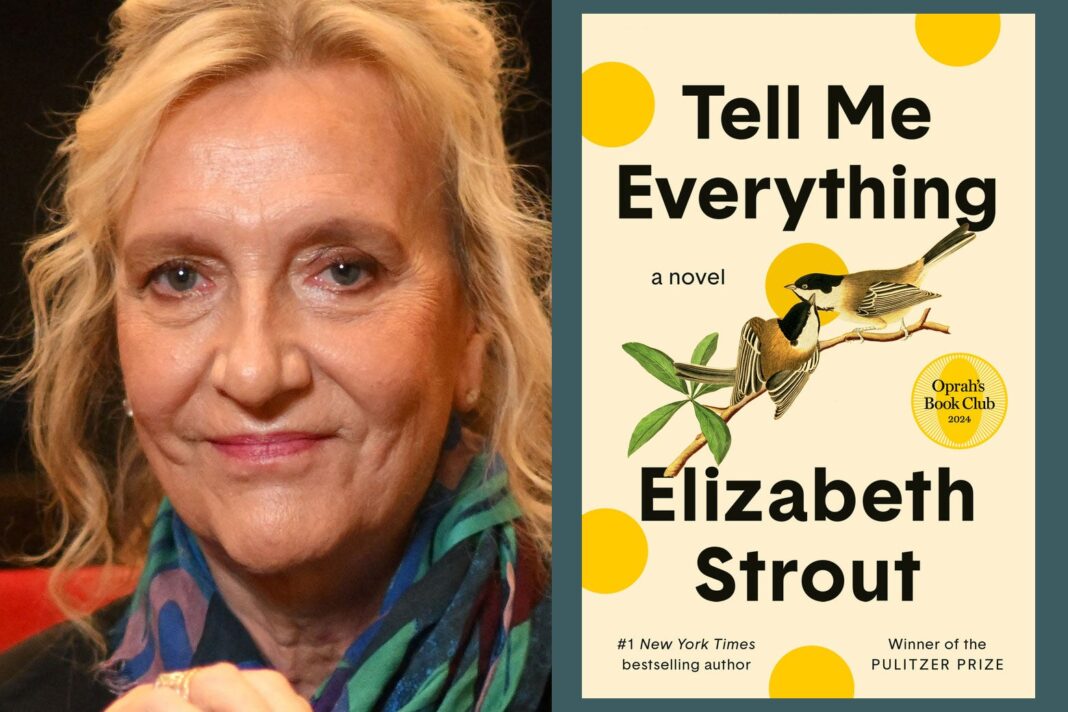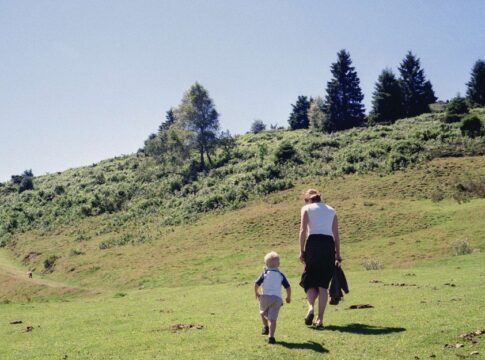Gabfest Reads is a monthly series from the hosts of Slate’s Political Gabfest podcast. Recently, David Plotz talked with Elizabeth Strout about her new novel Tell Me Everything. The book brings back familiar characters from Strout’s previous work, like Lucy Barton and Olive Kitteridge, and while its plot surrounds a murder, there is so much more to this sleepy town.
This partial transcript has been edited and condensed for clarity.
David Plotz: The leaves on the trees are definitely a minor plot point in Tell Me Everything. There’s a corpse and a murder and a lovely New England small town at the heart of Tell Me Everything, but this is not like a Murder She Wrote kind of book. Did you conceive of this book as a murder mystery, or was it always a book about human beings and the murder just kind of showed up?
Elizabeth Strout: That’s really interesting. I think that there were a couple of different things. One was wanting to get Lucy with Olive because I just thought that would be fun. And then the murder thing, I think I intended it to be a much larger part of the book, but then I realized as I was writing the book that, no, it’s just going to be one more piece of the book. And it settled down a little bit at that point into just part of the narrative.
The book has things that are much more important than the murder in it. And it does track a little bit as a mystery, and yet it becomes clear as a reader that… this is not going to be an Agatha Christie situation, it’s just not.
Right.
You tell the book from the perspective of Bob Burgess, the mostly retired criminal lawyer who’s up in Maine with his minister wife, and he’s struck up an alarmingly close friendship with Lucy Barton, the novelist, who’s also living in Maine. What draws Bob and Lucy together?
Well, I think as the narrator tells you at the very beginning, they actually have rather similar backgrounds. Lucy came from tremendous impoverishment, and Bob was simply just poor as a child. But their backgrounds, their cultural backgrounds, are similar in the sense that they were both from many generations that came over here years ago. And I think that’s interesting, because I think that gives them a natural kind of alliance at the start of their relationship. But they’re also very good listeners. Lucy is a really good listener, and Bob listens to everybody. And this is what they are doing for each other on these walks. They’re listening and telling each other all sorts of things, and I think that makes them very close.
So much of this book is about people telling stories and listening to each other, and another key element is, of course, Lucy is spending a lot of time with Olive Kitteridge—now in her nineties, still quite vinegary. They have this kind of Arabian Nights sort of thing where they tell stories to each other. Where did that come from? Why did you want them to meet each other like that?
I just sort of gradually, and then all of a sudden, realized that they’re living in the same place. They actually are living in the same town. Come on, let’s just see what happens when they are sitting in a room together because they’re such entirely different people. And so that first story where Olive summons her because she thinks that she might be interested in her story, that first story, after I wrote it, I thought, “Wait a minute. I think I’m going to do this throughout the book.” This will be a motif: Lucy and Olive will get together and tell each other stories. Because Olive is actually a very curious person. She enjoys thinking about people, and she knows that Lucy does as well, and so this is their common point. And they will sit there and tell each other unrecorded lives, as they say.




